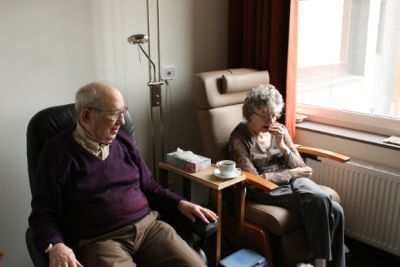How Trauma Affects You Emotionally and Socially, and How to Overcome It

Emotional and psychological trauma is usually the result of an extremely stressful event experienced by a person, which has affected his or her sense of security and ability to cope with life.
It makes a person feel utterly helpless and alone in a dangerous world. Psychological trauma can also cause troubling emotions, anxiety, and memories that are very difficult to bear and recover from.
Aside from that, it can also leave a person feeling disconnected from other people, emotionally numb, and distrustful.
This topic is very complicated and has plenty of nuances. So, what is trauma, and how does trauma affect you socially and emotionally?
The Cause of Psychological Trauma
Traumatic experiences are characterized as events that threaten a person’s life, sense of self/the world around them, or physical and emotional safety. However, almost all situations that make you feel overwhelmed and lonely can trigger trauma, even though your physical safety isn’t necessarily threatened.
What happens does not determine if the event is traumatic or not; instead, it is your emotional experience of that specific event that evokes feelings of trauma. If it made you feel terrified and vulnerable, it is incredibly likely that you will be traumatized.
In essence, what can traumatize one individual over another varies significantly depending on a person’s genetic predisposition, personality, sensitivity, life experiences, and many more factors.
Trauma can be caused by the following:
- Dangerous past experience: This can be a violent attack, an accident, or something that resulted in an injury. It is also more likely to cause trauma if the event was completely unexpected or occurred during childhood.
- On-going stress: This can be caused by various factors, like living in a dangerous neighborhood, having a terminal illness, or experiencing multiple traumatic events repeatedly, such as being on the frontlines, experiencing bullying, domestic violence, or child abuse.
- Commonly overlooked causes: Other things that can cause trauma include surgery in infants, the unexpected death of a loved one, parting ways with a partner, or being in a very humiliating or disappointing situation.
How Trauma Affects Cognitive Development
Brain development during infancy and childhood is one of the most critical foundations for healthy growth and development. At this stage, the neural pathways are formed at breakneck speeds, and this process depends on the repetition of experiences. This process is the brain’s way of teaching a child how to respond and what to expect in the external world.
When a child experiences a traumatic event, the most often-used pathways are the ones that relate to trauma response. This prevents the child from forming other pathways that develop adaptive behavior.
The effect of trauma on a child’s cognitive development is a well-researched topic in the medical world. It has been established that experiencing trauma in early childhood can lead to cognitive delays, disrupted attachment, and impaired emotional regulation. Aside from that, the over or under-development of specific pathways can lead to impairment when a child reaches adulthood.
What Happens to Your Body After You Experience a Traumatic Event
If you were involved in a traumatic event, your body protects you by employing its defenses and creating a stress response. Much has been said about how trauma affects individual behavior, but it can also have other effects, like more intense emotions. This is because your body’s fight or flight response releases adrenaline to encourage you to prepare for imminent danger. You can experience symptoms such as:
- Elevated blood pressure
- Increased heart rate
- Excessive sweating
- Reduced activity in the digestive system (loss of appetite)
These symptoms are completely normal, as they are part of the body’s mechanisms to respond to an emergency. By having them, you are more prepared to fight or run away to safety.
After you experience a traumatic event, you may also be in shock and denial. This period can last over several hours or days, and you can experience a wide variety of emotions, such as sadness, anger, and unnecessary guilt. However, most people will feel better with time and can go back to normality gradually.
However, there are some cases where these unfavorable feelings persist for a long period of time. If you are experiencing this prolonged malaise as a consequence of a traumatic event, you should consult a therapist, because this condition can lead to more serious mental health problems, like depression and post-traumatic stress disorder (PTSD).
Depression
Depression is a lot more complicated than feelings of sadness or numbness. Someone with this mental health condition experiences very intense emotions, like melancholy, anxiety, pessimism, and helplessness.
These emotions also linger instead of dissipating naturally with time.
Treatments, like cognitive behavioral therapy (CBT), counseling, and psychotherapy, are only some of the most effective therapies to administer to deal with depression.
Antidepressants can also be prescribed either in combination with talking therapy or on their own.
PTSD
The anxiety that people who are diagnosed with post-traumatic stress disorder (PTSD) feel can last for several months or years, regardless if they were injured or not.
A person dealing with PTSD can have nightmares or flashbacks of the event, experience panic attacks, avoid places or things associated with the event, suffer from sleep disturbance, and lack focus. Aside from these, drug and alcohol abuse, as well as unexplained anger, depression, and emotional numbing are also common.
These symptoms are some of the most visible signs of how trauma affects a veteran’s mental health after returning from deployment.
The most effective way for veterans and civilians to recover from long-term, complex PTSD is to talk with a clinical psychologist. During these therapy sessions, they will be encouraged to talk about their experiences in detail. There are a few treatments and tests for PTSD now that veterans can look into so they are able to get the best help for their situation.
They can also undergo behavioral or cognitive treatments. Antidepressants can also be prescribed to manage depression that is experienced simultaneously with PTSD.
You may also want to consult with a VA attorney that can help you figure out any legal aspects. To learn more you can find a VA attorney here.

How Trauma Can Change How You Interact Socially
As you see, trauma can change your emotional life profoundly, but how does trauma affect you socially?
Let’s look closely into how it affects social interactions.
Relationships
After experiencing a traumatic event, a person is usually emotionally distressed, and it makes it more difficult for him or her to feel that they or belongs.
It can cause them to cut off their interaction with family and friends, avoid social gatherings, become more defensive, or have difficulty managing or expressing their emotions.
Work
A person who recently experiences trauma would find it very difficult to continue with their pre-trauma habits, but getting back to a routine, especially a work routine, is one of the best ways to recover from it.
If you need to go back to work after being traumatized, you should seek professional help to receive expert advice and get more support in doing so successfully. This is very important, even though it may seem to you that you can deal with it by yourself.
It is often easier to solve a problem right from the onset, instead of dealing with it or managing it when it gets worse and presents a significant risk to your mental health.
How to Overcome the Negative Effects of Trauma
You can feel trauma symptoms for several days to years, but the symptoms often fade as you process the traumatic event in your mind and come to terms with it.
However, even when you already think that you’ve gotten better, you can be reminded of the painful memories when you experience triggers, like the event’s anniversary or anything that reminds you of it.
Here are some tips that can help you heal yourself completely:
Take good care of yourself
It is crucial to look after your well-being and health. You can take a break and go someplace to relax and process the traumatic experience in your mind. Likewise, you should look to adopt a healthy diet and refrain from doing drugs or drinking alcoholic beverages.
These things may seem to help at the moment, but they actually only make the problem worse in the long run.
Get support from family and friends.
Talking about your experience with your family and close friends can be very difficult. Not only is there a chance that they may not understand you, but you can also feel that you don’t want them to be affected by what you’re going through.
Still, it’s very important for you to be surrounded by people who understand you, as this can help with hastening your recovery. You don’t need to talk to them about your feelings immediately; you should take your time and do so when you feel ready.
You can also visit resources that focus on helping individuals who suffer from trauma heal naturally, like http://www.guardsdown.com. These resources and services can help you find a supportive group of like-minded individuals, offer culturally-sensitive counseling, and provide alternative methods for holistic treatment.
Seek help from specialists
If the symptoms you are experiencing are already affecting your daily life, you should immediately seek professional help. Doing so will help you start the recovery process sooner.
You should consider seeking professional help if:
- You don’t have a support network (friends and family)
- You’ve been having the same symptoms for six weeks or longer
- Your work or studies are already affected
- Someone close to you noticed sudden changes in your behavior and is asking you to seek help
- You’re struggling to complete your daily routine
- You are taking drugs or alcohol to deal with your situation
One final tip is to consider the EMDR Healing website which gives you a self-healing option or the ability to find an EMDR therapist who will help you get through this difficult time in your life.
Final Thoughts
Now, you already know the answer to the question, “how does trauma affect you socially and emotionally?” If you or someone you know is going through it, you should know that love and support are among the most important things that you/they need to recover.
Although it is difficult, with enough support and help from professionals, a person dealing with his or her trauma will get better in time.
Browse our website to read more interesting articles on health and wellness!







